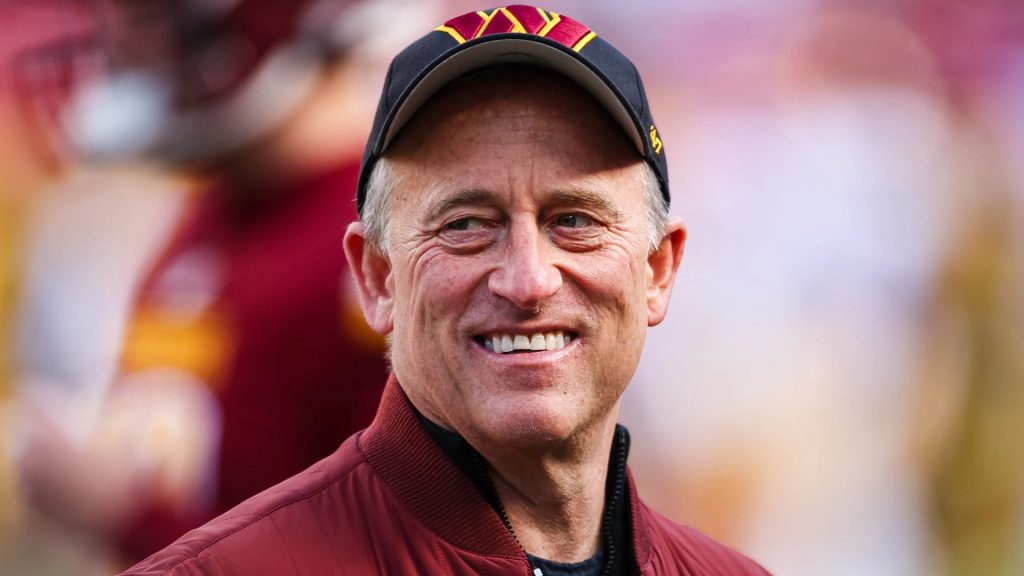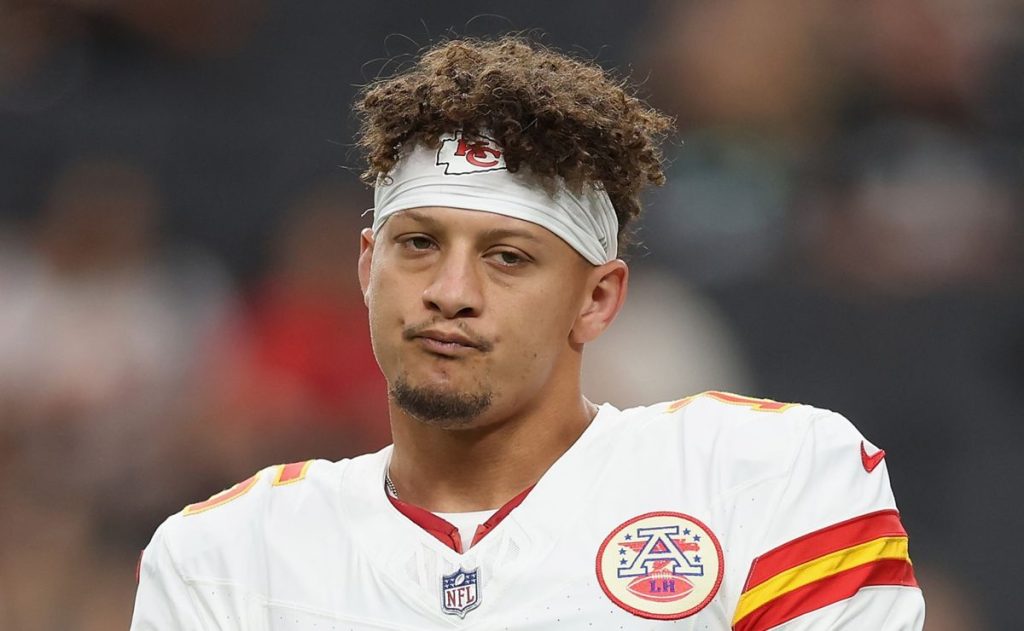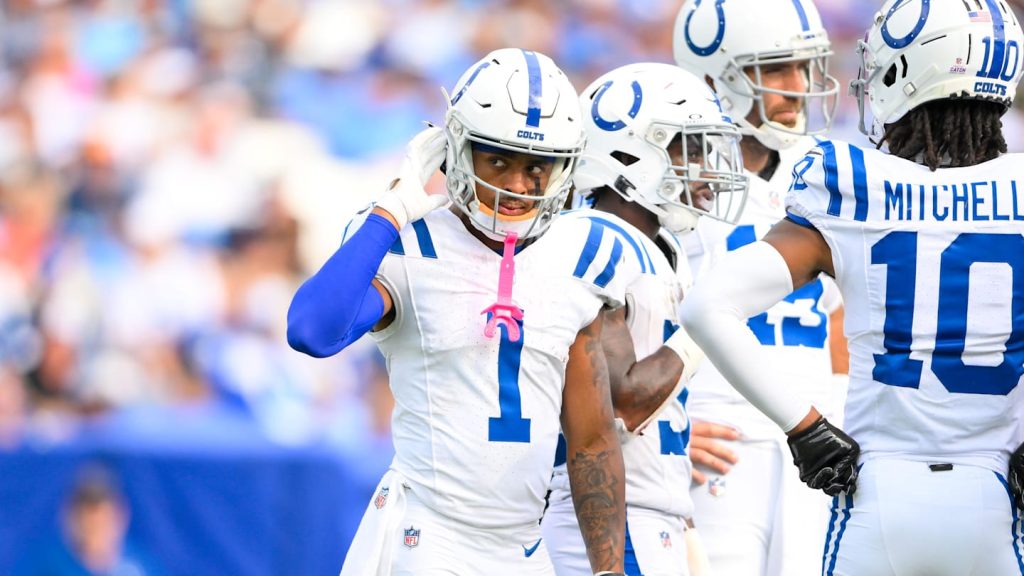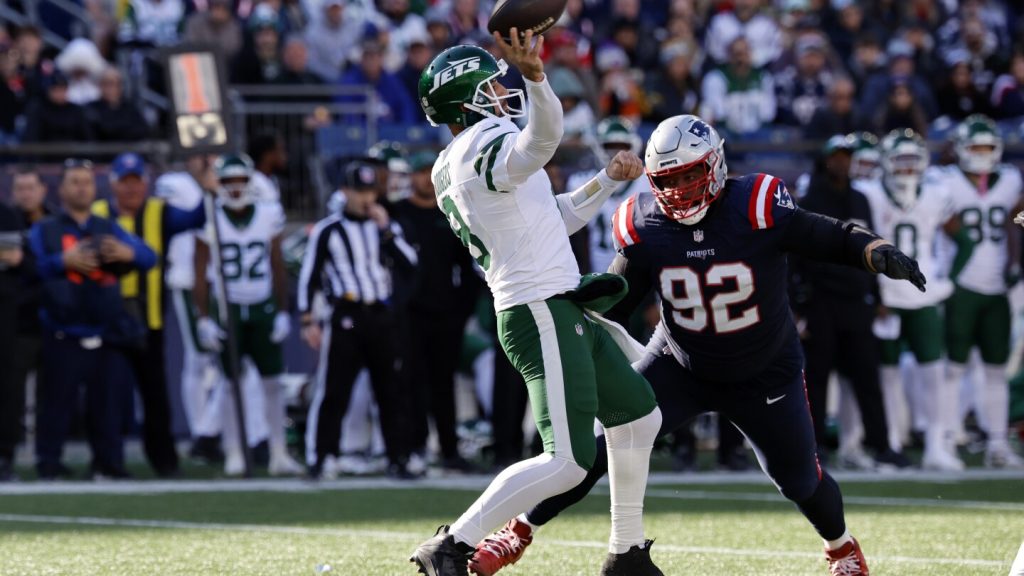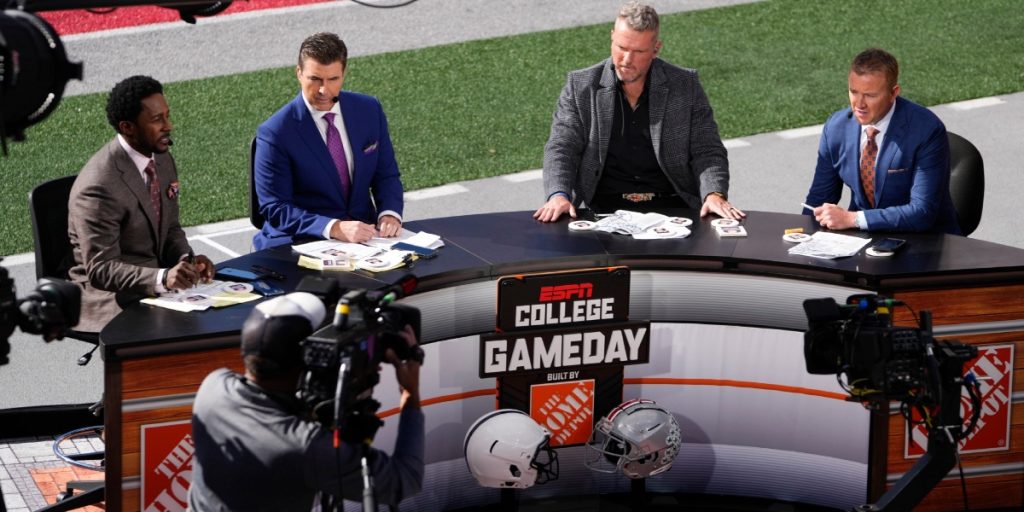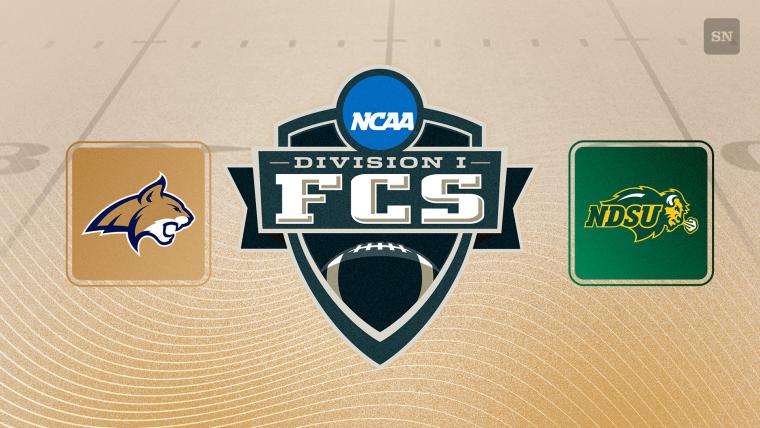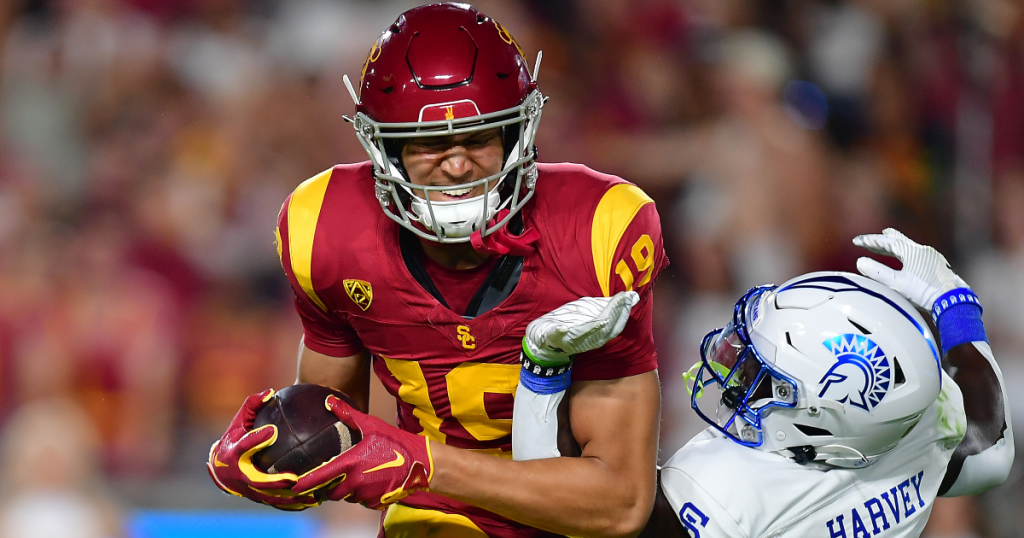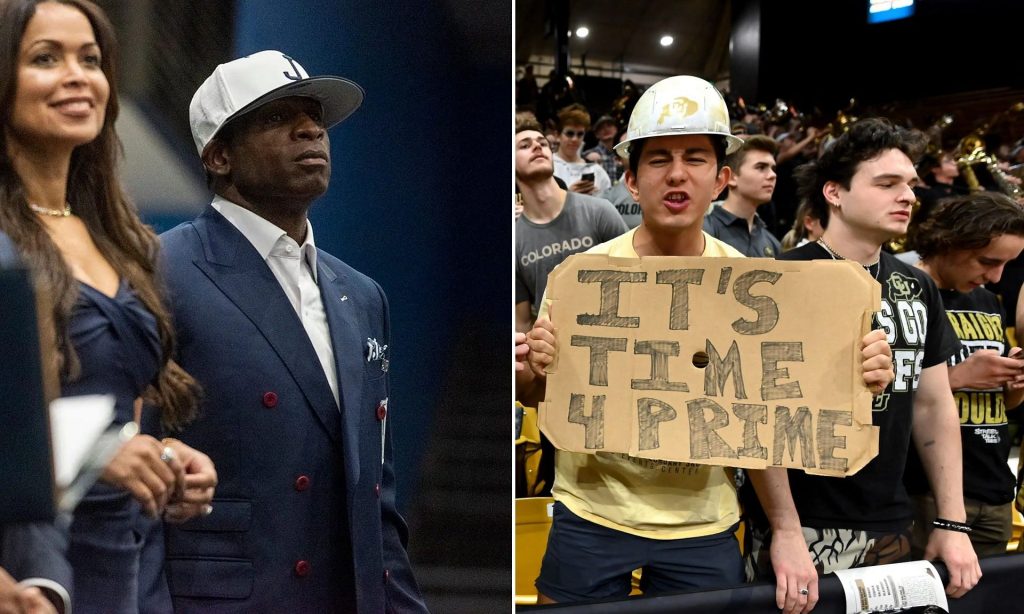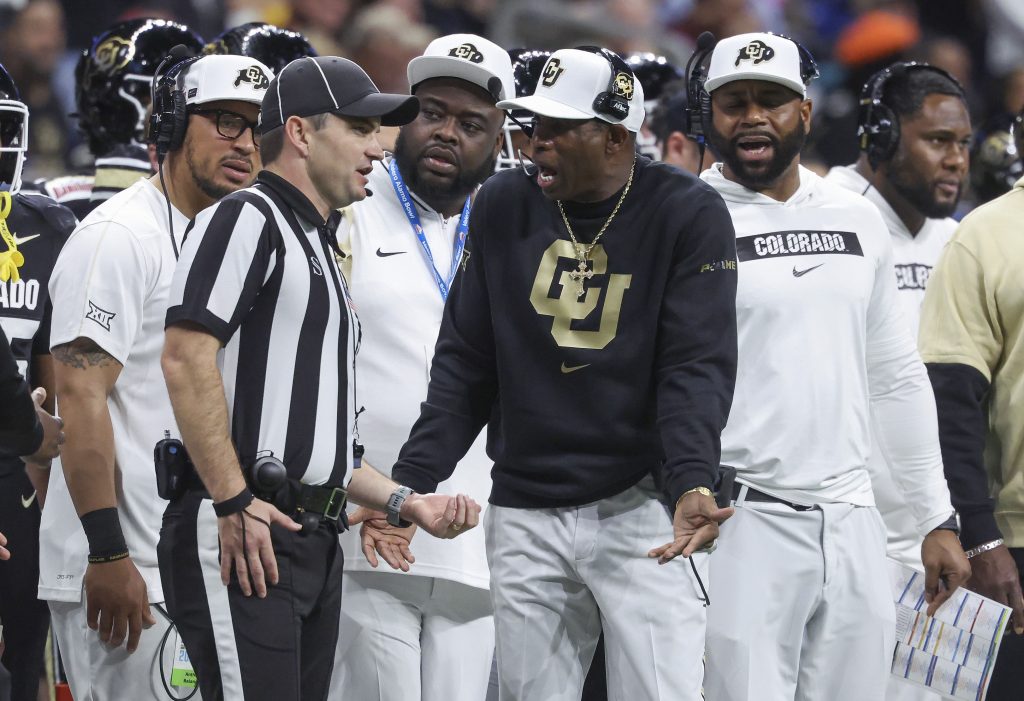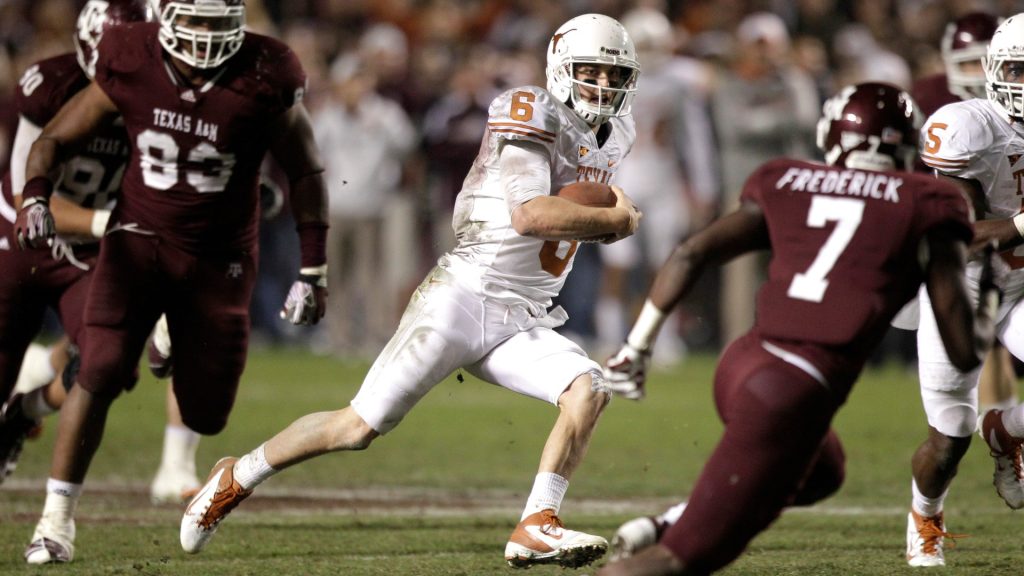Travis Hunter made history on Saturday night by winning the Heisman Trophy, a prestigious accolade that is often dominated by offensive players. His victory marks a significant moment for defensive players in college football, a group that has rarely received this level of recognition. Hunter’s achievement not only adds him to the list of former winners but also shines a spotlight on the importance of defense in a sport that often prioritizes scoring. What does this mean for the future of college football? Could we see a shift in how the game is played and appreciated?
Reflections from Heisman Winners
As Hunter celebrated his monumental win, the minds of previous Heisman winners turned to their own experiences with the coveted trophy. What do these legends do with their awards after the spotlight fades? Two notable winners, Robert Griffin III and Mark Ingram, shared their unique stories this weekend, and their answers might surprise you.
Where do the trophies go?
“I gave it to my parents for 10 years,” said Griffin, the former Baylor star, during an appearance on The Triple Option podcast. This heartfelt gesture speaks volumes about the importance of family support in achieving such a prestigious honor. Griffin went on to reveal that his trophy is now proudly displayed in his man cave, a space that surely reflects his journey and accomplishments.
Ingram had a similar tale, sharing that his Heisman Trophy was with his mother for 14 years before he finally took possession of it. “I just got it a year ago,” the former Alabama running back explained. “I was still in college when I won it. Like you don’t take the Heisman back to the dorm. I am the Heisman. I don’t have to have the Heisman. If you want the Heisman, come get me. You want to touch the Heisman, come touch me.” This lighthearted comment brought laughter from the panel, but it also highlights the deep connection these athletes have with their awards and the journey they took to earn them.
Why family matters
Griffin elaborated on why he chose to give his Heisman to his parents, emphasizing their role in his success. “I’m sure you gave it to your parents for that reason, but I gave it to my parents because I felt like they were a big reason that I was able to win it,” he said. This sentiment resonates with many athletes who understand that their achievements are often built on a foundation of family support and sacrifice.
He also recounted a touching moment from right after his win. “My teammates, I rushed back right after we won the Heisman to go to bowl practice. I missed one bowl practice, I was kind of pissed about it. We get back and put the Heisman Trophy right in the middle of practice so that every single guy on the team could see that we won this, not one individual.” This story encapsulates the spirit of college football, where teamwork and camaraderie often outweigh individual accolades.
What’s next for Travis Hunter?
As Travis Hunter reflects on his historic win, one can’t help but wonder what he will do with his trophy. Will he follow in the footsteps of Griffin and Ingram, or will he carve out his own unique path? The possibilities are endless, and fans are eager to see how he will embrace this new chapter in his life. Hunter’s story is just beginning, and it has the potential to inspire a new generation of players, especially those on the defensive side of the ball.
Defensive players in the spotlight
Hunter’s victory is significant not just for him but for all defensive players in college football. Traditionally, the Heisman Trophy has been awarded to quarterbacks and running backs, leaving defensive players in the shadows. But with Hunter’s win, there is hope that the narrative may change. Could this lead to more recognition for defensive talent in the future? Will college football fans begin to appreciate the art of defense as much as they do high-scoring offenses?
As the college football landscape continues to evolve, Hunter’s Heisman win serves as a reminder that greatness can come from any position on the field. It challenges the status quo and encourages coaches, players, and fans alike to broaden their perspectives on what it means to be a star in college football.
The legacy of the Heisman Trophy
The Heisman Trophy is more than just an award; it represents the pinnacle of achievement in college football. For many, it symbolizes years of hard work, dedication, and sacrifice. It is a testament to the athletes who have poured their hearts and souls into the game. As Hunter joins the ranks of past winners, he carries with him the weight of expectation and the hope of future generations. What legacy will he create, and how will he inspire others to follow in his footsteps?
As we celebrate Travis Hunter’s remarkable achievement, let’s take a moment to appreciate the journey of all Heisman winners. Their stories remind us that college football is not just about the game; it’s about the people, the relationships, and the unforgettable moments that define a player’s career. With Hunter’s victory, the stage is set for a new era in college football, one where defensive players can shine just as brightly as their offensive counterparts. The future looks promising, and we can’t wait to see what comes next!

















